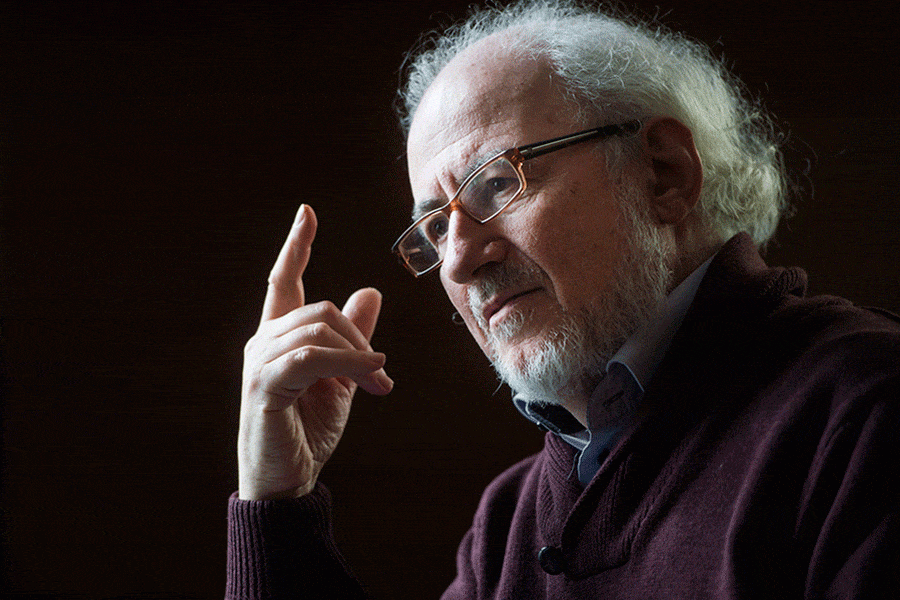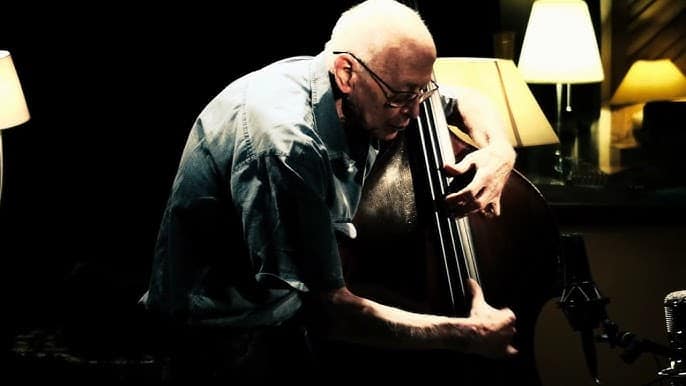Free English National Opera from Arts Council control
mainIn an interview on BBC’s Front Row, I returned to a simple solution for Britain’s perpetual opera crisis.
Over the past 25 years, one or other of the Arts Council England’s biggest clients – Royal Opera House, English National Opera, National Theatre, Royal Shakespeare Company – has been under threat of cuts or closure after falling foul of ACE’s arrogant bureaucrats and budgetary controls.
Put simply, ACE has proved itself inadequate time and again in dealing with major international companies. It has conveyed uncertainty instead of confidence, hostility instead of support.
The best way to assure long-term budgetary stability at the four companies is to remove them from ACE control and place them – like the British Museum and national galleries – under direct funding from government, through the Department for Culture, Media and Sport.
The ACE is not competent at handling big artistic enterprises.
You can hear the interview here (just after the 10 minute mark).







The Arse Council’s competency in “managing” what it once named “Centres Of Excellence” must be called into question.
The idea to establish the Council came about to put core governent funding for the Arts at “arm’s length” from politicians – so that political-motivated decisions to fund X or close Y did not affect arts organisations. This aim is now patently dead, and decisions are handed-down in Whitehall, and merely rubber-stamped by the Council.
What does the Council actually do for its money? Nothing whatsoever. It simply provides employment for an unwanted and unneeded body of Ruperts and Cressidas to stick their oar into things of which they haven’t the slightest clue.
How are appointments made at the Arse Council? What level of direct experience in the strategic management of major arts organisations is required of the Council’s officers?
It’s time for a clean-up.
As Sir John Tusa wryly pointed out in an interview I did with him some years back, the Arms Length principle may still exist, but the arms have got very much shorter over the years.
Well spoken Norman – cogent and constructive.
+1
For years there seems to have been general agreement that the move to the Coliseum, however excellent much of ENO’s artistic output, was a disaster waiting to happen – financially speaking. Yet is there not a touch of irony here? Was not one of the most enthusiastic supporters of the move none other than Arnold Goodman at the time when he was Chairman of the very Arts Council now seeking its emasculation? And didn’t Goodman eventually become ENO Chairman for more than a decade after the move to the Coliseum had finally been achieved?
Two points on NL’s BBC analysis. Firstly, if the ENO was to become one of a quartet of major national companies funded directly by the relevant Ministry, how does that alter the fact that the company has over the decades vastly overspent? Would this mean that the bailouts would no longer be required? Surely not! They would merely be transferred to another branch of government. The public purse still would have to pay.
Secondly, national touring as advocated by NL. I don’t know when the ENO stopped its touring but the slack was more or less picked up by the regular forays into England by Scottish Opera and Welsh National Opera (paid for as NL points out by the ACE) and eventually, after its creation, Opera North. With the Scottish Executive having emasculated Scottish Opera, there may be gaps to fill. But touring presents two monstrous problems. First and foremost dragging a company with 250+ personnel around the country is enormously expensive. More important, most regional theatres have stages a fraction of the size of the Coliseum. How much more cash would have to be spent to adapt scenery to fit, say, the tiny stage of the Theatre Royal in Newcastle?
Norman, you are so right about this. Today the ACE’s intrigues against ENO are transparent. You mention that this has been going on for 25 years yet it was already a subject of heated discussion some 31 years ago when I took over ENO from Lord Harewood and Arnold Goodman, then ENO Chairman, refused to let the ACGB “assessor” have a voting seat on the Board stating that the Arts Council’s representative was present as our chosen advocate in financial negotiations with Government nothing more or less and should have no editorial or other influence in the company’s decisions. As for touring: it is sometimes forgotten that Opera North was founded by ENO under Lord Harewood and started life as “ENO North” before being granted, as befitting to its swift growth and importance, independence in its affairs. The Arts Council has changed beyond recognition. It is no longer any sort of advocate for the arts but a body that uses public funding to promote its own agenda including its wish to reduce opera provision in England. Ironic that its decision to fund blogs was announced one day after Darren Henley’s rant in the Guardian against ENO (“Cut or die”). This is a far cry from the Arts Council of Keynes, Jennie Lee or Arnold Goodman!
Thank you Peter for setting the record straight. There were good days of the Arts Council in which real artists and performers sat on panels to advise the body which advocated all the arts with government, the press and the public all over the country.
Why the hell should the opera houses get state funding? I cannot think of any industry in recent times that cannot pay its way getting bailed out, are you listening miners and steelworkers out there!
If they are not financially viable then let them go to the wall………..but oh no! these are middle and upper middle class institutions and must be preserved for the nation, as Ricky Tomlinson used to say in The Royle Family…….. “my arse!”
I am sure all the “luvvies” will gather together to protest and send letters to The Times and Telegraph about the need to preserve “their craft”……….don’t you just love the pretentiousness of such a phrase!
If you cannot see why the state should nuture and support its culture (or are you only against it for opera?) then it seems there is little point discussing it with you.
Indeed, one would wonder why you are even on a blog like this?
I am on here because it is open to everyone and to counter the sanctimonious pleadings for the arts by people like yourself. Your snotty superior attitude to anyone who disagrees with arts funding says it all. As a matter of interest I am an opera lover, even visited Vienna for a Tristan and Isolde, but I get sick of this special status that the classical world seeks for itself.
And whilst you are at it please define “culture”……………….does it take in rock, jazz, folk or are they considered “lower” culture for the masses and not worth funding?
With al due respect, the sanctimony was all yours in your original post.
Yes, jazz, rock, theatre, etc should also be nurtured and supported by the state.
So my original point still stands, given your question; do you think only opera or the classical arts should be stripped of such support, or do you believe that the state has no role to play in any cultural sphere?
In an ideal world the arts should be supported, and not just the disproportionate amounts handed over to the classical and opera worlds. But the question I put back to you is “if the miners and steelworkers work in industries that are not economically viable, should they receive industrial funding to maintain dignity, a sense of worth and avoid the destruction of communities?”
After all, these industrial workers make as much contribution to society as do the “arts world” employees.
Would the opera houses only get a fraction of public subventions of miners and steelworkers, they’d had no problems for decades. Steel industry and coal mining all over Europe are publicly supported by amounts nobody can even dream of – not to speak of agriculture or the nuclear industry,
I think the point is, what does economically viable mean?
And yes, is my answer re your question
@Ellingtonia Actually if you look back over time, the steel and coal industries and the railways and car manufacturing, received considerable state subsidies, probably far in excess of what the arts have received since 1945. I would be very surprised if the rationale for that industrial subsidy had anything to do with “maintain[ing] dignity, a sense of worth and avoid the destruction of communities”.
And on the issue of subsidy, as Professors John Holden and Robert Hewison have usefully pointed out, if subsidy is the application of state funding to public services, then the Police are subsidised, our Armed Forces are subsidised and plenty more besides.
This is really an argument about balance. And on that score Ellingtonia has a valid point to make – both balance across artforms and balance in terms of regional distribution. Funding for opera, however good, is problematic in terms of both funding balance and changing tastes and we’ll probably continue to argue about it for years to come.
The specific ENO problem might be a lot simpler if someone could come up with a viable future use for The Colisseum.